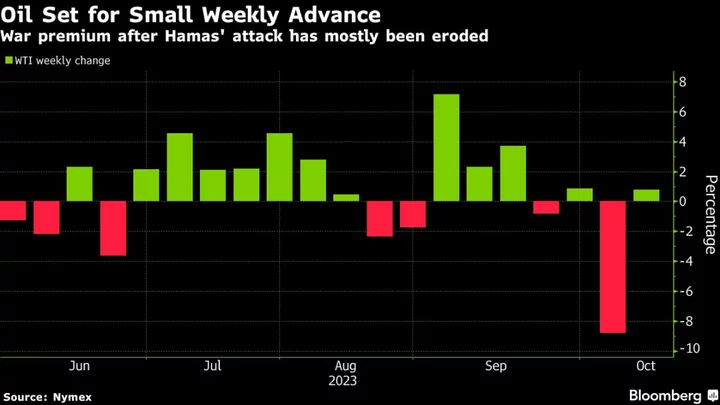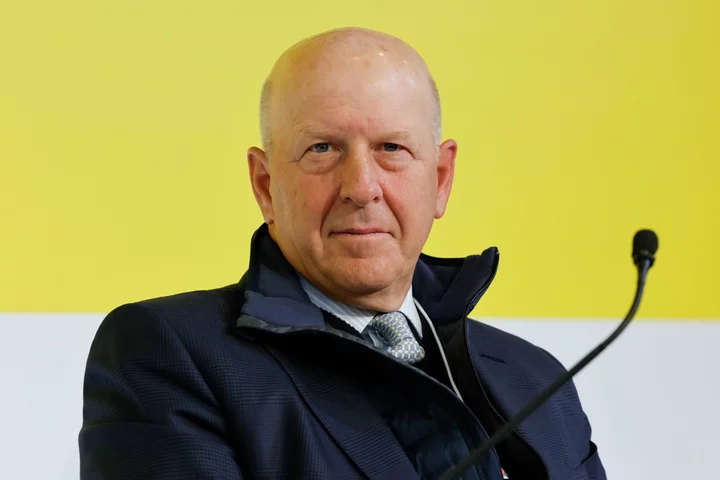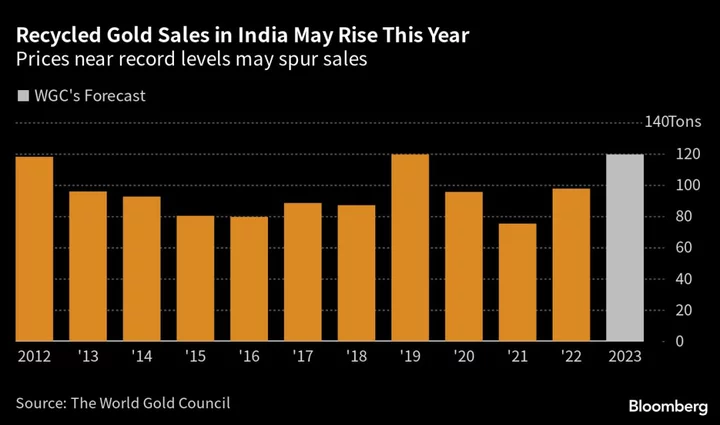Turkey is weighing its inaugural bond sale to an Abu Dhabi sovereign wealth fund by the end of this year, a milestone for Turkish policymakers trying to regain foreign investor confidence after years of mistrust.
The government will likely offer 10-year bonds in tranches to ADQ, owned by the oil-rich capital of the United Arab Emirates, Turkey’s Treasury and Finance Minister Mehmet Simsek told Bloomberg on Thursday.
Read more: Turkey Gets $51 Billion Pledge of Economic Support From UAE
The expected transaction marks the beginning of what’s likely to be the biggest flow of capital into Turkey’s $1 trillion economy from the Middle East petrostates. The UAE and Saudi Arabia have both expressed interest in investing, following a policy makeover that’s brought Turkey’s era of cheap money to an end under Simsek, who was appointed in June. At the same time, President Recep Tayyip Erdogan boosted ties with regional heavyweights and led the outreach to oil producers.
How Turkey Tries Balancing East and West as War Rages: QuickTake
“We don’t have to spend it immediately,” Simsek said of the likely proceeds from the expected sale. “Therefore, we may benefit from this opportunity partially before the end of this year.”
The ADQ funds will be used to finance reconstruction efforts in Turkey’s southeastern provinces that were struck by two powerful earthquakes in February.
ADQ, which has about $160 billion of assets, declined to comment.
Such foreign exchange flows are also critical for the country’s balance of payments. With short-term gross liabilities of over $200 billion, Turkey is trying to gradually slow economic growth with higher interest rates while stabilizing the lira, the world’s second-worst emerging market currency of the year, according to data compiled by Bloomberg.
Getting all those parts of the current economic program right is critical to rein in inflation — currently above 60% — and raise growth potential later, Simsek said.
“The reasonable level for inflation is single digit in the medium term,” Simsek said. “Disinflation will bring about sustainable, high growth. I have no doubts about it.”
The central bank, which has raised interest rates by more than 30 percentage points since the elections to 40%, is “rebuilding Turkey’s yield curve,” Simsek said.
Foreign investors’ share in Turkey’s domestic debt stock was around 28% at its peak, compared to 0.9% now, he said. “We have reconstructed the yield curve, and from now on there will be very strong interest in this market.”
The Bond Trade of 2024 in Emerging Markets May Be in Turkey
That reversal — when it happens — along with an expected slowdown in inflation to around 36% at the end of next year will also allow the finance ministry and monetary authority to gradually undo restrictions imposed on Turkey’s financial markets since 2018.
Among the top concerns for foreign investors is whether or not they can borrow in liras in the offshore market — a key requirement for those who want to hedge against possible currency losses before they decide to buy Turkish assets again.
“We have a holistic approach to reserves, current-account deficit and disinflation. As we have a more comfortable hand, we will ease restrictions gradually. But I don’t want to give a time frame,” the minister said.
--With assistance from Asli Kandemir, Ugur Yilmaz, Patrick Sykes and Nicolas Parasie.









